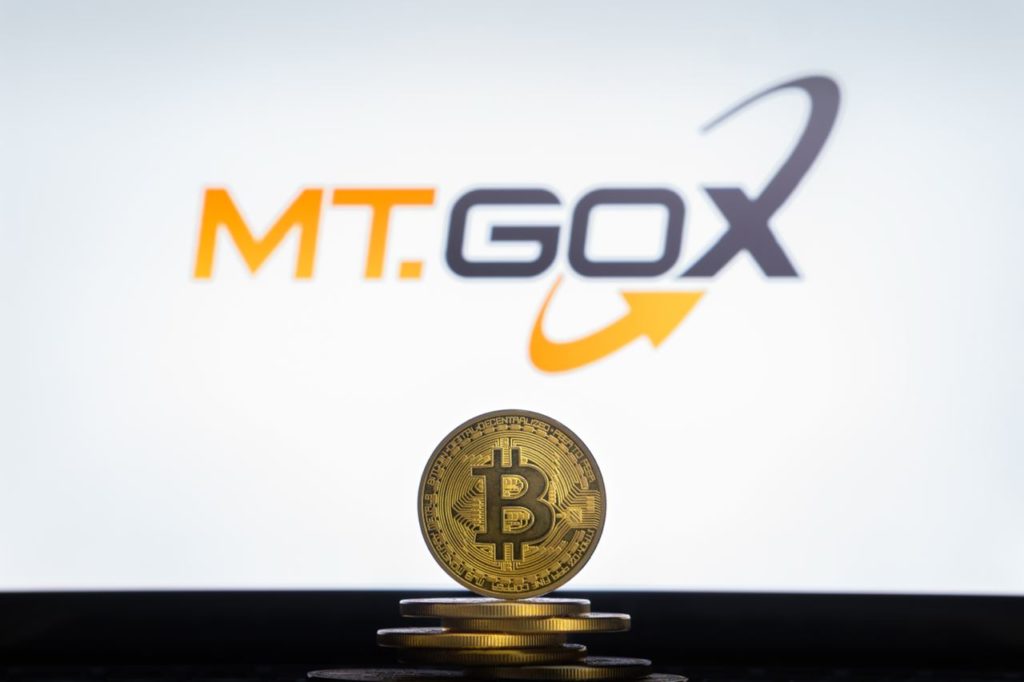Bitcoin Transfer from Mt. Gox to Bitstamp Suggests Imminent Payout
21.08.2024 14:00 1 min. read Alexander Stefanov
It appears that Mt. Gox has moved approximately $75.36 million worth of Bitcoin to a Bitstamp wallet, potentially signaling an upcoming payout to creditors.
Arkham Intelligence’s data shows that 1,264.69 BTC was transferred from Mt. Gox’s cold wallet to another wallet, at around 8:49 a.m. UTC. The blockchain analytics firm confirmed that this wallet belongs to Bitstamp.
Additionally, the transaction data revealed that Mt. Gox’s cold wallet received Bitcoin the previous night from another one of their wallets, in a transaction that sent 12,000 BTC (valued at $709.44 million) to an unknown address.
Bitstamp is among the centralized exchanges selected by Mt. Gox’s trustee to facilitate Bitcoin repayments to creditors of the defunct exchange. Other exchanges, such as Kraken, have already begun processing these repayments.
Mt. Gox, established in 2010 and based in Japan, was once the largest Bitcoin exchange globally until it suffered a massive hack in 2014, resulting in the loss of at least 850,000 BTC.
-
1
Bitcoin Hashrate Declines 3.5%, But Miners Hold Firm Amid Market Weakness
27.06.2025 21:00 2 min. read -
2
Trump-Linked Truth Social Pushes for Bitcoin-Ethereum ETF as Crypto Strategy Expands
25.06.2025 19:00 2 min. read -
3
Bitcoin’s Price Closely Mirrors ETF Inflows, Not Corporate Buys
26.06.2025 11:00 2 min. read -
4
Crypto Company Abandons Bitcoin Mining to Focus Entirely on Ethereum Staking
26.06.2025 20:00 1 min. read -
5
Bitcoin ETF Inflows Hit $2.2B as Market Calms After Ceasefire
25.06.2025 17:00 1 min. read
Peter Schiff Warns of Dollar Collapse, Questions Bitcoin Scarcity Model
Gold advocate Peter Schiff issued a stark warning on monetary policy and sparked fresh debate about Bitcoin’s perceived scarcity. In a pair of high-profile posts on July 12, Schiff criticized the current Fed rate stance and challenged the logic behind Bitcoin’s 21 million supply cap.
Bitcoin Price Hits Record Highs as Exchange Balances Plunge
A sharp divergence has emerged between Bitcoin’s exchange balances and its surging market price—signaling renewed long-term accumulation and supply tightening.
What’s The Real Reason Behind Bitcoin’s Surge? Analyst Company Explains
Bitcoin touched a new all-time high of $118,000, but what truly fueled the rally?
Bitcoin Lesson From Robert Kiyosaki: Buy Now, Wait for Fear
Robert Kiyosaki, author of Rich Dad Poor Dad, has revealed he bought more Bitcoin at $110,000 and is now positioning himself for what macro investor Raoul Pal calls the “Banana Zone” — the parabolic phase of the market cycle when FOMO takes over.
-
1
Bitcoin Hashrate Declines 3.5%, But Miners Hold Firm Amid Market Weakness
27.06.2025 21:00 2 min. read -
2
Trump-Linked Truth Social Pushes for Bitcoin-Ethereum ETF as Crypto Strategy Expands
25.06.2025 19:00 2 min. read -
3
Bitcoin’s Price Closely Mirrors ETF Inflows, Not Corporate Buys
26.06.2025 11:00 2 min. read -
4
Crypto Company Abandons Bitcoin Mining to Focus Entirely on Ethereum Staking
26.06.2025 20:00 1 min. read -
5
Bitcoin ETF Inflows Hit $2.2B as Market Calms After Ceasefire
25.06.2025 17:00 1 min. read


